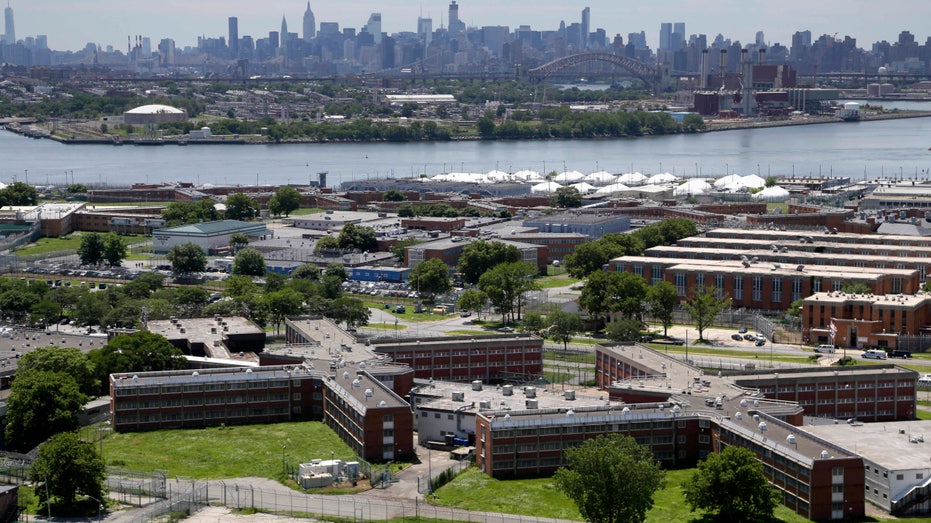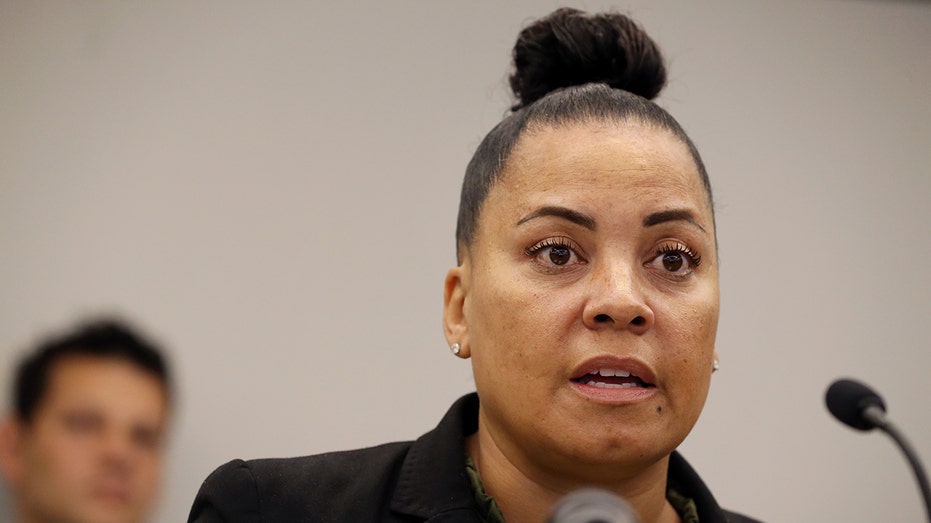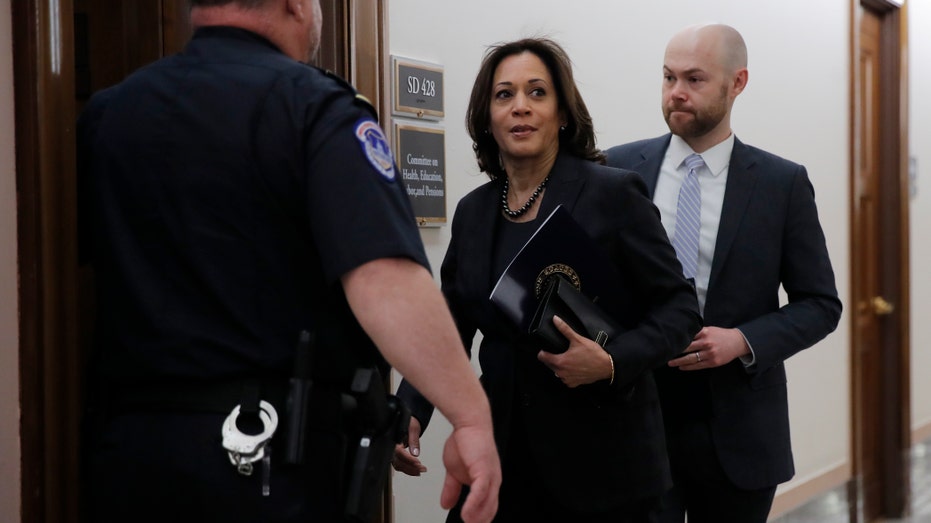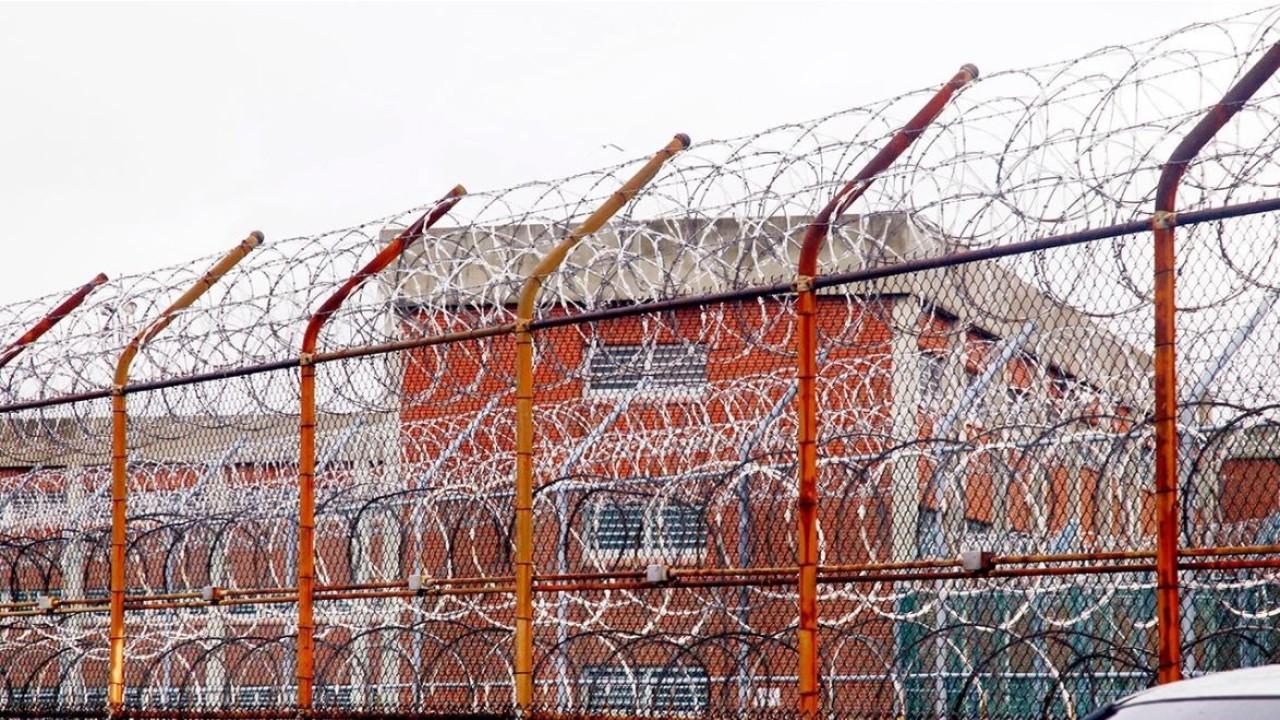Jails release thousands of inmates to curb coronavirus spread
The number of people 55 or older in state and federal prisons reached 164,400 in 2016, according to the Pew Charitable Trusts
Thousands of inmates in at least 16 states are being released in an effort to prevent the spread of the coronavirus in crowded jails and prisons.
California, New York, Ohio and Texas are among the states where officials are sending low-level offenders and elderly or sickly inmates home early, the Wall Street Journal reports.
CORONAVIRUS RAISES CONCERNS IN JAILS AND PRISONS
Experts say they are worried about the older demographic of inmates, who are more susceptible to the virus. According to Pew Charitable Trusts, the number of people 55 or older in state and federal prisons reached 164,400 in 2016, more than triple from 1999.
"We're all headed for some dire consequences," Daniel Vasquez, former warden of San Quentin and Soledad state prisons in California, told the Journal. "They're in such close quarters—some double- and triple-celled — I think it's going to be impossible to stop it from spreading."
Others worry that prisons lack the resources necessary to combat an outbreak.
The head doctor at Rikers Island, Ross MacDonald, warned in a Twitter thread this week that "a storm is coming."
"To be clear, the public servants who care for those in your jails have been planning for this storm for weeks and months," MacDonald said. "We will muster every tool of public health, science and medicine to try to keep our patients safe. We will apply every novel treatment and scarce test. We will put ourselves at personal risk and ask little in return. But we cannot change the fundamental nature of jail."
"We cannot socially distance dozens of elderly men living in a dorm, sharing a bathroom. Think of a cruise ship recklessly boarding more passengers each day," he added.

(AP Photo/Seth Wenig, File)
New York City was hit by the nation's largest coronavirus jail outbreak to date this week, with at least 38 people testing positive at the notorious Rikers Island complex and nearby facilities — more than half of them incarcerated men, the board that oversees the city's jail system said Saturday.
On Friday, New York City officials approved the release of 56 detainees from Rikers Island after Mayor Bill de Blasio said earlier in the week that they would identify individuals for release, including people who were arrested for minor crimes and those most vulnerable to infection due to underlying health problems.
"In the next 48 hours, we will identify any inmates who need to be brought out because of either their own health conditions — if they have any pre-existing conditions, etc. — or because the charges were minor and we think it’s appropriate to bring them out in this context," de Blasio said on WCBS radio Wednesday evening.
"That said, we still need our criminal justice system to function," he added.
De Blasio's announcement came just hours after a guard and a prisoner tested positive for coronavirus at Rikers Island prison.
GET FOX BUSINESS ON THE GO BY CLICKING HERE

(Photo by Craig F. Walker/The Boston Globe via Getty Images)
Over in Boston, Suffolk County District Attorney Rachael Rollins said in a press release on Thursday that she was working on a plan to release inmates who "are vulnerable because of their health, age, socio-economic status, or circumstances, but pose no meaningful risk to public safety."
"While Americans across the country are being encouraged to self-isolate, members of our incarcerated population are, by definition, doing the exact opposite with no alternative options," Rollins said. "We need to seriously consider pathways to prevent the spread of COVID-19 for our incarcerated populations, the overwhelming majority of which will return to our communities at some point in the future."

Sen. Kamala Harris, D-Calif., arrives for a briefing on Capitol Hill in Washington, March 12, on the coronavirus outbreak. (AP Photo/Carolyn Kaster)
Sen. Kamala Harris, D-Calif., a huge advocate for the release of inmates during the coronavirus pandemic, told the Federal Bureau of Prisons in a letter on Thursday that "BOP should be taking reasonable steps to reduce the incarcerated population and guard against potential exposure to coronavirus."
"On March 19, the chief physician of Rikers Island called on state and local judges and prosecutors to reduce the incarcerated population wherever possible, explaining that ‘the luxury that allows you to protect yourselves, carries with it an obligation to those you detain.’ We need the same show of leadership at BOP," Harris wrote. "At this time, BOP—in coordination with the U.S. Department of Justice — can and should request the release of low-risk individuals who are in pretrial detention because of money bail. BOP and the Justice Department also have a responsibility to direct federal, state, and local courts to consider the risk of coronavirus in any pretrial release decision-making."
Los Angeles County Sheriff Alex Villanueva said during a press conference last week that he had reduced the jail population from 17,076 to 16,459 since the end of February by asking police to cite and release low-level offenders and by releasing inmates with fewer than 30 days left on their sentences.
"Our population within our jails is a vulnerable population just by who they are, where they are located, so we're protecting that population from potential exposure," Villanueva said.
Villanueva added that arrests have dropped to 60 a day from around 300.
The LA County jail system is the largest prison system in the world with an average population of around 22,000 prisoners.
POLICING AMID CORONAVIRUS PANDEMIC: HOW THESE BIG CITIES ARE RESPONDING
Despite the calls to release inmates, some police groups are still worried about a potential increase in crime as a result of the decision.
"If you put convicted, but not yet rehabilitated criminals out on the streets where large swaths of the business world are shut down, you can expect an increase in property crimes from looting to robbery," said James Pasco, executive director of the Fraternal Order of Police to the Washington Times. "You run the risk of exacerbating the problem."
But from March 9 to 15, the crime rate in New York City spiked only 9 percent compared to the same week in 2019, according to NYPD compstat data. Murder doubled, (from 4 to 8); car thefts surged by 64 percent (75 to 123); rapes increased 18 percent (28 to 33); robberies ticked upward 8 percent, (212 to 229); burglaries soared 36 percent, (157 to 213), grand larcenies bumped up 4 percent (744 to 775), and felony assaults decreased by 4 percent (403 to 389).
CLICK HERE TO READ MORE ON FOX BUSINESS
According to a 2018 report in the Prison Policy Initiative, there are an estimated 2.3 million people behind bars in federal, state and local prisons. The U.S. locks up more of its citizens per capita than any other country.
The Associated Press contributed to this report.




















